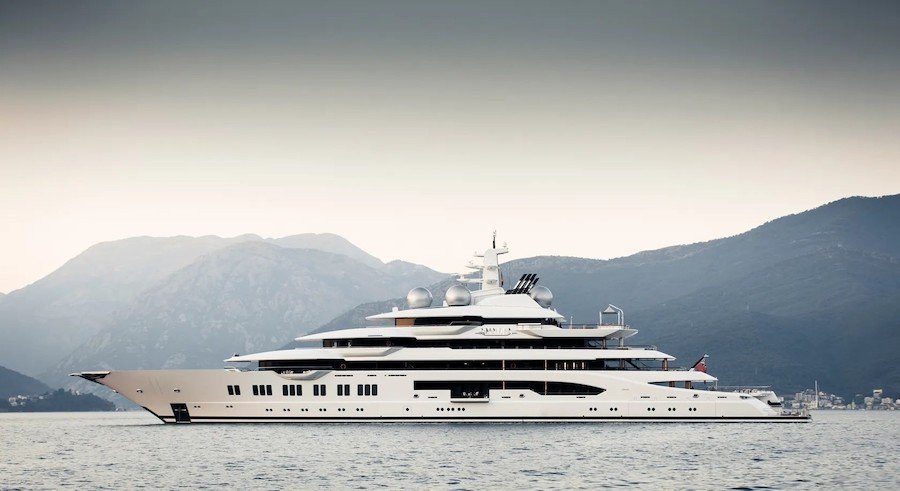Seized Russian Oligarchs’ Superyachts Are in for a Very Expensive “Legal Purgatory”

Although it was presented as a victory, it turned out to be only the beginning of another saga that seems to have no end in sight. Meanwhile, U.S. citizens are paying the bill.
More than 15 superyachts believed to be owned by Russian oligarchs who support the Kremlin have been seized globally since March this year, after international sanctions against Russia were issued in response to the invasion of Ukraine.
As people soon found out, the frozen assets quickly became a financial drain due to the exorbitant maintenance and insurance costs. The future isn't looking any better, because the process of eventually getting some benefits from these superyachts is very lengthy and complicated.
It’s been months since the 348-footer (106 meters) was sailed from Fiji to Hawaii, with U.S. marshals on board. It was a success for the authorities, who fought to prove that Amadea was indeed owned by billionaire Suleiman Kerimov. A success that now costs roughly $10 million per year, a burden that falls on the U.S. taxpayers.
This cost was estimated by Stephanie Baker, senior writer at Bloomberg News. In an interview with NPR, she stated that maintenance for superyachts in operation typically adds up to 10% of their value. When docked, costs go down to only 3%. But, for superyachts such as Amadea, with an outrageous value, this small percent equals millions of dollars.
Baker also explained that the U.S. planned to sell all seized assets, but this is done through something called forfeiture. This is a lengthy, complicated procedure, through which authorities have to prove before a judge not only the vessel’s ownership, but its link to proceeds resulting from crime. In the meantime, litigations over who is expected to pay for the maintenance are also in sight.
“They're essentially going to be in sort of legal purgatory for many years,” said Baker.
However, this doesn’t seem to stop the U.S. from continuing on the same path. Andrew Adams, director of the US KleptoCapture Task Force, recently told the BBC that a new wave of superyacht seizures is on the way. But at what cost? That is the question.
Related News


